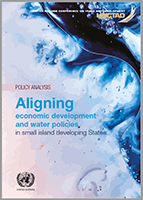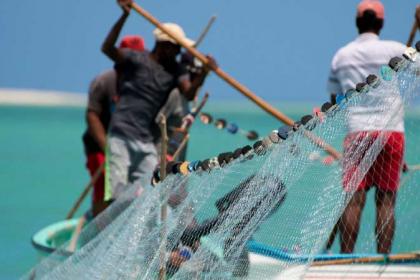
Small island developing States (SIDS) are among the most water-scarce countries in the world, with seven in ten SIDS facing risks of water shortage, including nine in ten low-lying SIDS (UNESCO, UNEP, 2016).
Water being an element of life, its scarcity undermines fundamental priorities, such as the human right to clean water and sanitation and the conservation of habitat and biodiversity.
By extension, water scarcity constrains economic development in SIDS. A limited availability of freshwater impacts, for example, the feasibility of developing water-intensive industries that might otherwise be suited to SIDS’ contexts, such as fish processing, beverages, textiles, or smelting and refining metals.
From a different angle, water scarcity impacts the feasibility of more productive production models, in particular irrigated agriculture. Scarcity also imposes zero-sum compromises in the allocation of water between the production of, on one hand, essentials such as food and energy and, on the other hand, commercial goods and services.
In this paper, we analyse how SIDS can better align their economic development and water management policies to support the productive transformation of their economies, in particular by incorporating water security and water productivity into their economic plans.
Section 2 elaborates the fundamental and multi-faceted relationship between water and economic development and present short case studies of both success and failure in considering water security in economic plans.
Section 3 profiles the use of water as an input in productive economic activities in SIDS – including agriculture, industry and electricity generation – using water footprint and virtual water trade data, to identify key considerations for water-secure economic policies.
Section 4 summarises our analysis of how well economic policies in SIDS incorporate water security and productivity, using national development plans as our research object. The section closes with an identification of policy gaps that SIDS must fill to better incorporate water security and productivity in their economic plans.
Section 5 present our policy recommendations to address the considerations and gaps identified in the paper, towards more water-secure, sustainable economic plans in SIDS.




